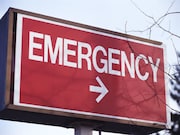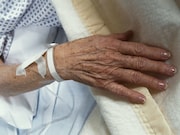Psychosocial Factors Key in Peds Care for Special-Needs Kids
Report provides guidance for clinicians caring for children and youth with special health care needs
Hospitalizations Up for Homeless From 2007 to 2013
Homeless individuals hospitalized more often for mental illness, substance use disorder
Pediatricians Have Role in ID’ing Postpartum Depression
Routine screening should be integrated into well-child visits at 1, 2, 4, and 6 months of age
Risk for Later Suicide Up for Certain Youth Presenting to ED
Hazard ratios significantly increased for self-directed violence after initial visit for epilepsy, seizures
More U.S. Teens Are Vaping, but Use of Opioids, Alcohol Falling
About 37 percent of 12th graders said they had vaped within the previous 12 months
Dementia Often Misclassified With Brief Cognitive Assessments
Only consistent predictor of overall misclassification was absence of informant-rated poor memory
Persistent Discrimination ID’d Among Physician Mothers
Physician mothers report limited opportunities for advancement, financial inequalities, lack of support
Depressive Symptoms Up From Age 10 for Sexual-Minority Youth
Sexual-minority adolescents were more likely to report self-harm in past year at ages 16 and 21
Medication Errors Resulting in Death Most Common in Elderly
Most common medication error category was omitted medicine or ingredient
Dementia Risk Up in Women With Military-Linked Risk Factors
Risk for developing dementia higher for women with TBI, PTSD, and depression



















